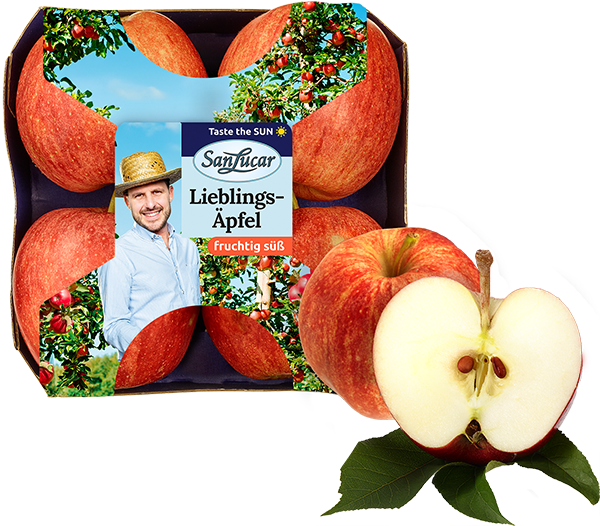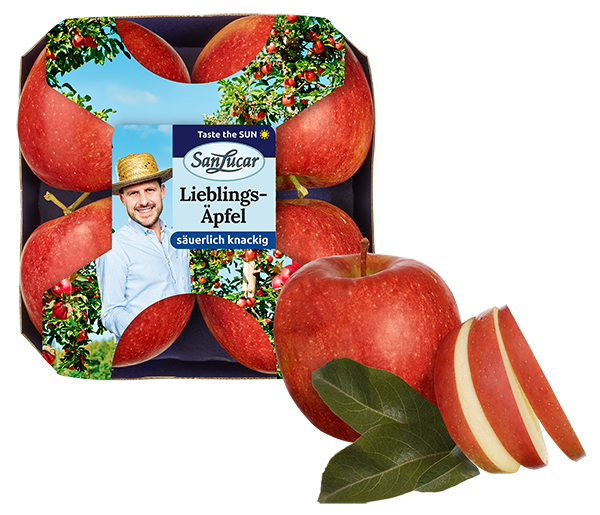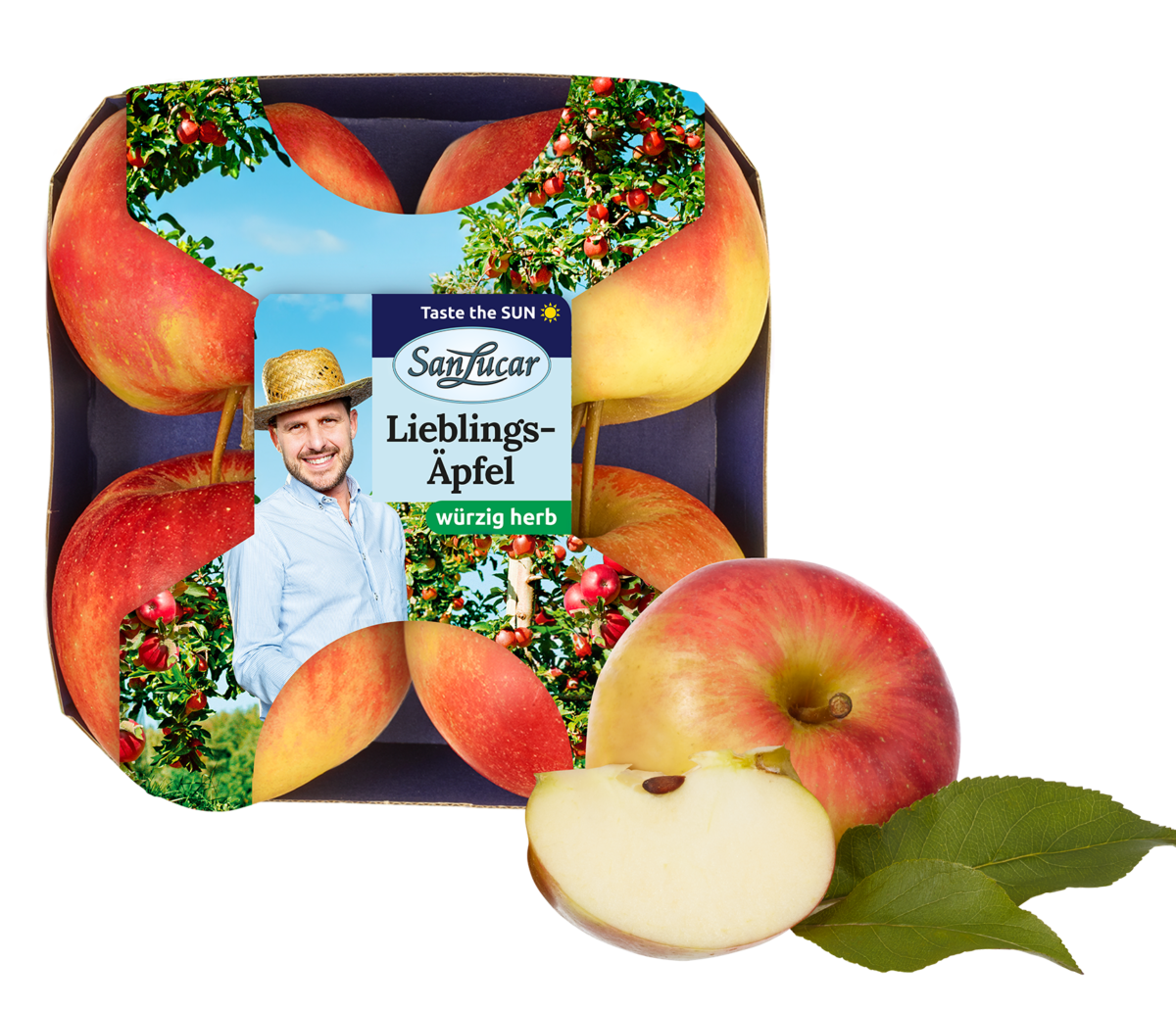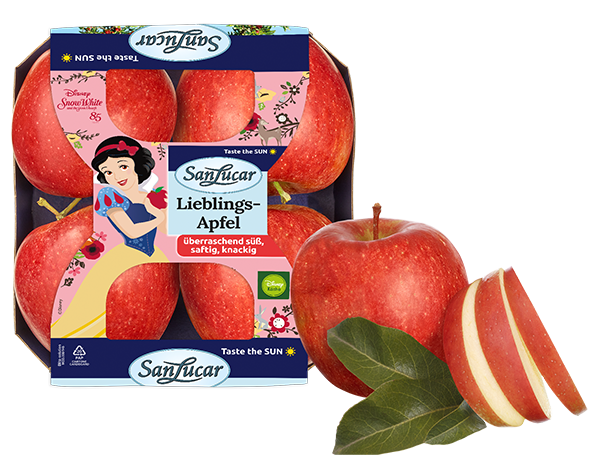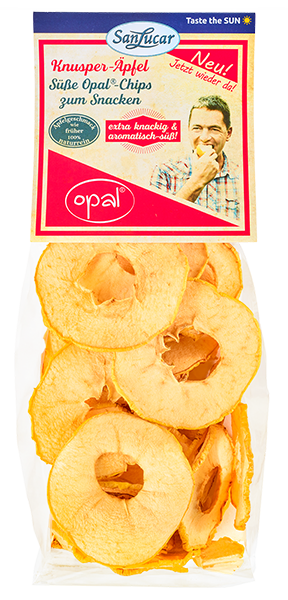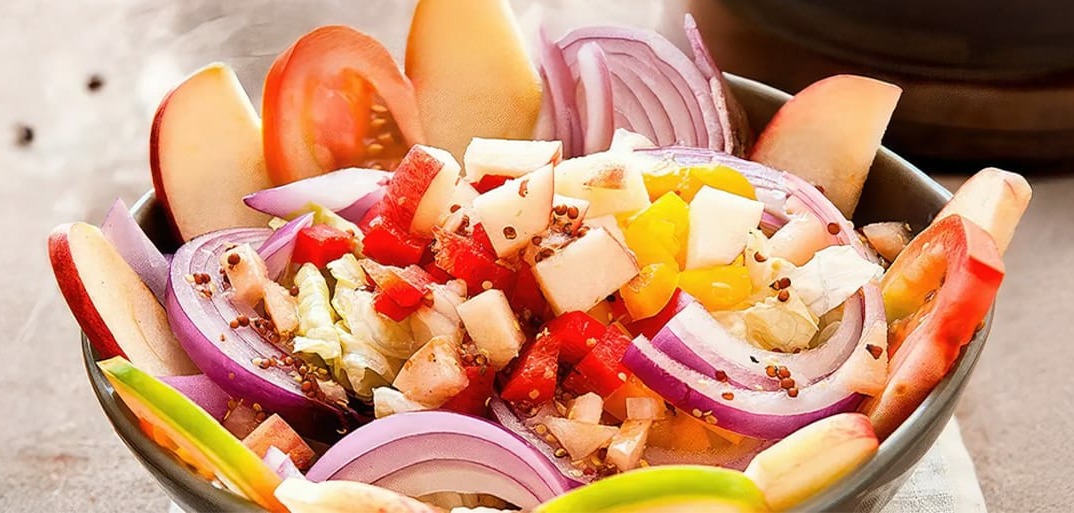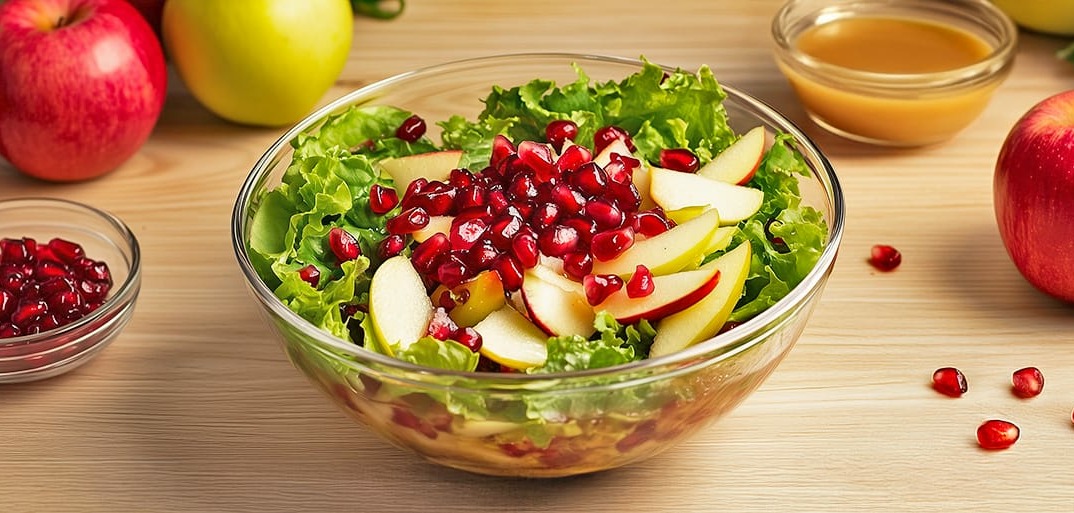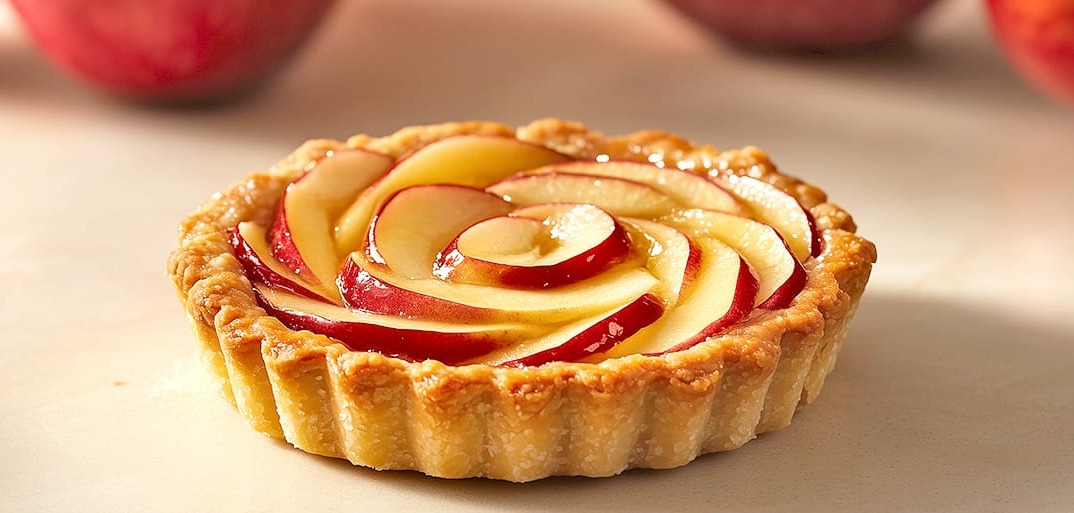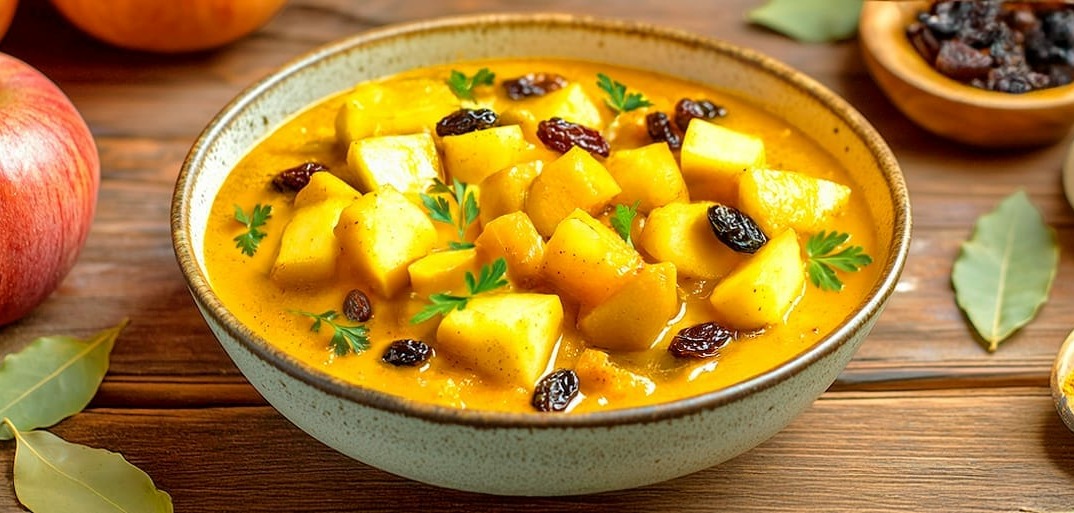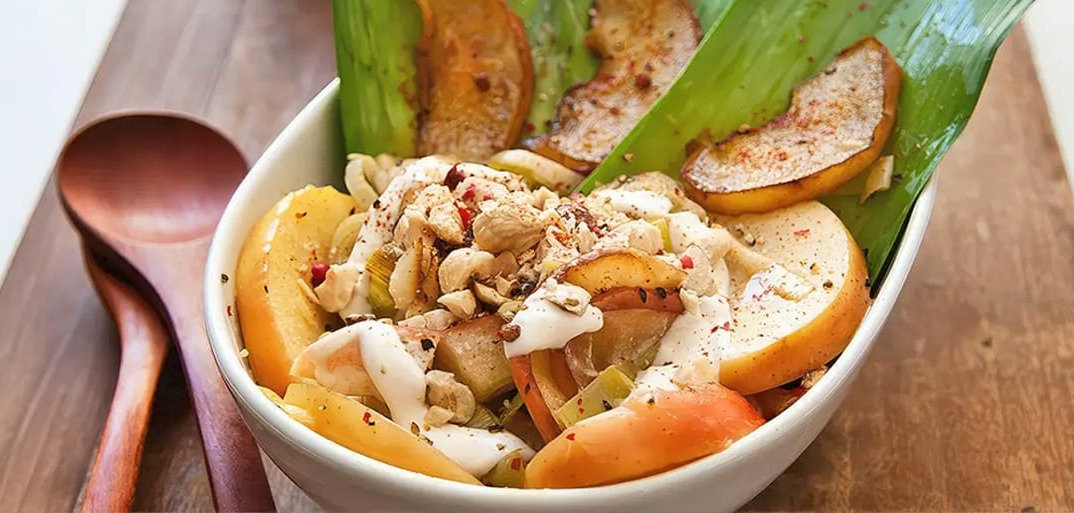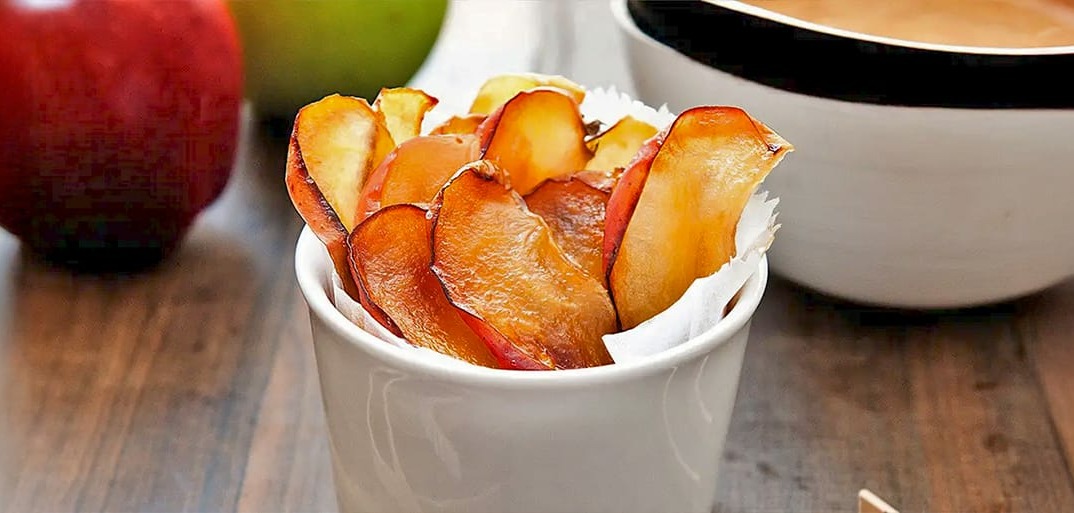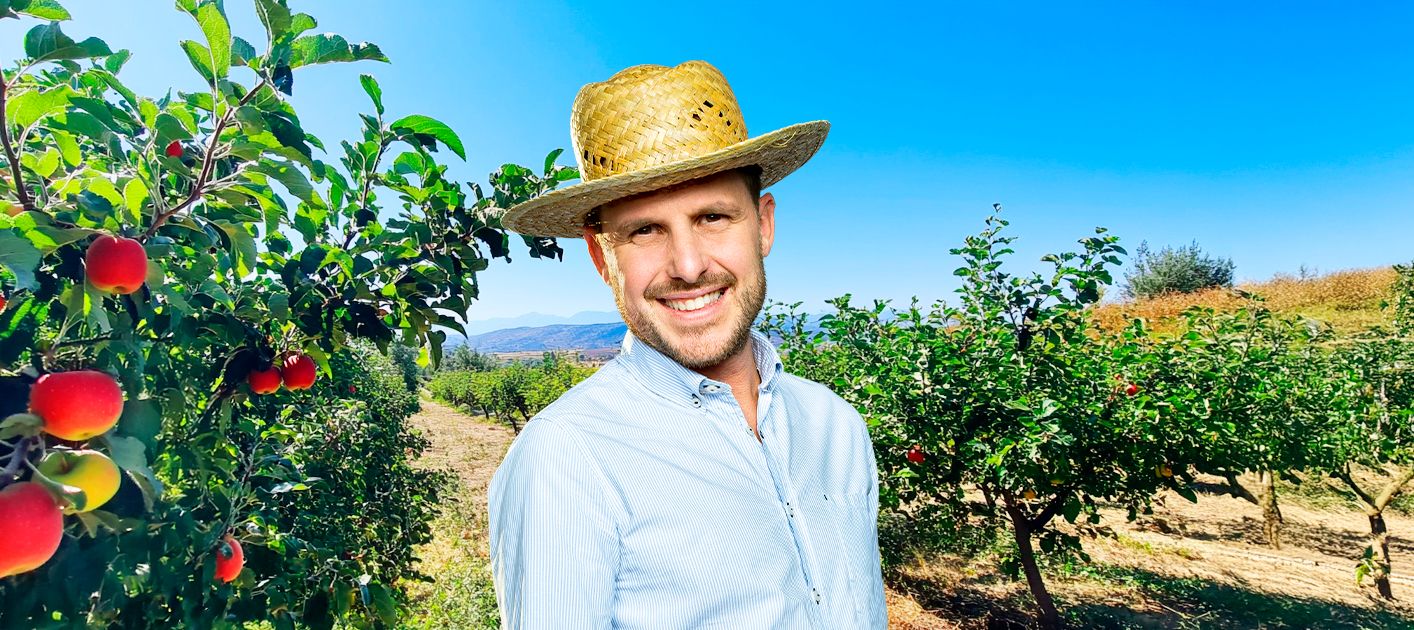
Imperial apples.
“You have to try this one,” says picker Sandra, proudly holding up a bright-red, shiny Rubinette apple. “It’s so crisp and fruity, it’s as if it came straight from paradise.”
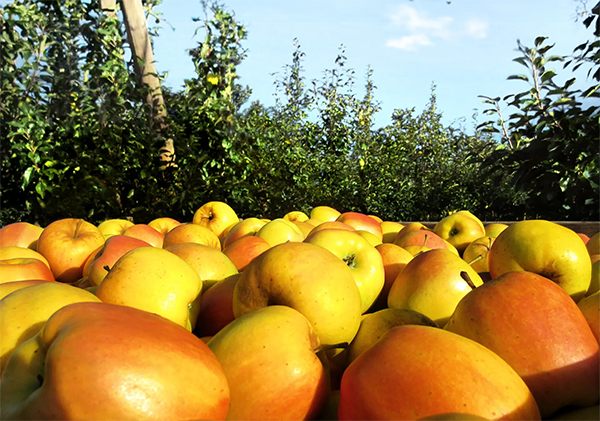
We have many delicious favorite apples. Whether Opal®, Braeburn, Red Delicious, Jonagold, Boskoop, Fuji or Elstar – they all taste naturally fruity and refreshingly delicious. No wonder! They thrive in paradise-like conditions, with the best soil, an ideal climate, experienced Master Growers and trained pickers.
We grow our apples in South Tyrol, Styria, Lake Constance and other fertile regions in harmony with man and nature. This means, for example, that we always rely first and foremost on natural predators when it comes to pests, and that we protect the bees so that they can diligently pollinate apple blossoms. And to save water, we use a modern, digitally controlled water management system.
For example, the consumer magazine Öko-Test picked out our “Gala” apple from Germany and rated it as “very good”.
That’s another good reason to snack on our favorite apples!
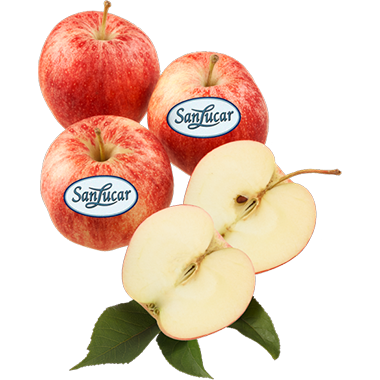
Good to know
Apples like it nice and cool. The best place to store them is therefore the fridge. Here they stay crisp for longer.
More interesting factsabout apples
Country of origin
Our many apple varieties grow and thrive for example on Lake Constance, in Styria and in South Tyrol.
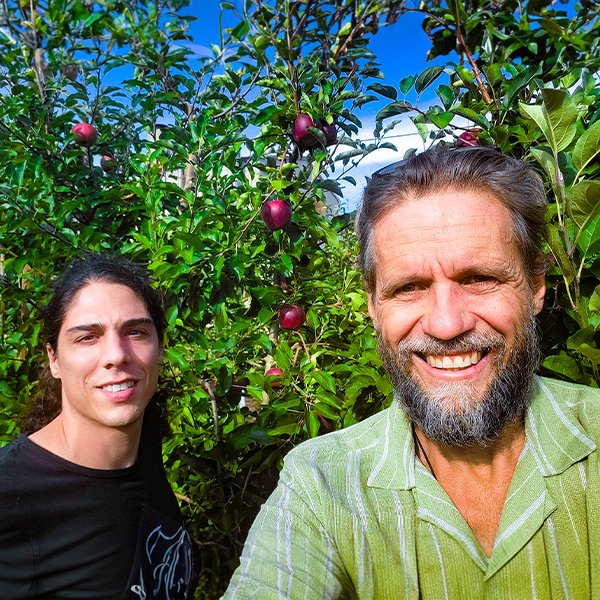
Storage
Apples are best stored in a cool, dark place or in a closed container in the refrigerator. This will keep them crisp and fresh for many weeks. At room temperature, they’ll soon start to shrivel. With a few squirts of lemon juice you can easily protect sliced apples from turning brown.
Tips and special features
Green, yellow, with red cheeks – the apple is as versatile as it looks. Sweet and crunchy, tart and aromatic – it enriches every kitchen and is one of the most popular fresh fruits par excellence. In Greece, by the way, it is a symbol of fertility, while the ancient Germanic tribes saw it as a symbol of immortality.
Nutritional information
| Vitamin B (mg/100g) | 0.8 mg |
| Vitamin C (mg/100 g) | 12 mg |
| Vitamin E (mg/100 g) | 1 mg |
| Potassium (mg/100 g) | 119 mg |
| Calorific values: Energy | 61 kcal |
| Monounsaturated fatty acids | |
| Polyunsaturated fatty acids | |
| Carbonhydrates | 14.4 g |
| of which sugar | 13.2 g |
| Protein | 0.3 g |
| Salt | 3 g |
| © German Food Code 3.02 |
History
Originally, the apple comes from Western and Central Asia, where it was cultivated as early as 10,000 BC. In ancient times, it came to southern and eastern Europe via various trade routes and enjoyed increasing popularity. The very early varieties still tasted sour and woody, and it was only through cultivation that the apple finally acquired its delicious sweetness.
Taste in harmony with people and nature
We use our modern, digitally controlled water management system to save water, always rely on natural predators first when dealing with pests and protect the bees.
More about our social responsibility
